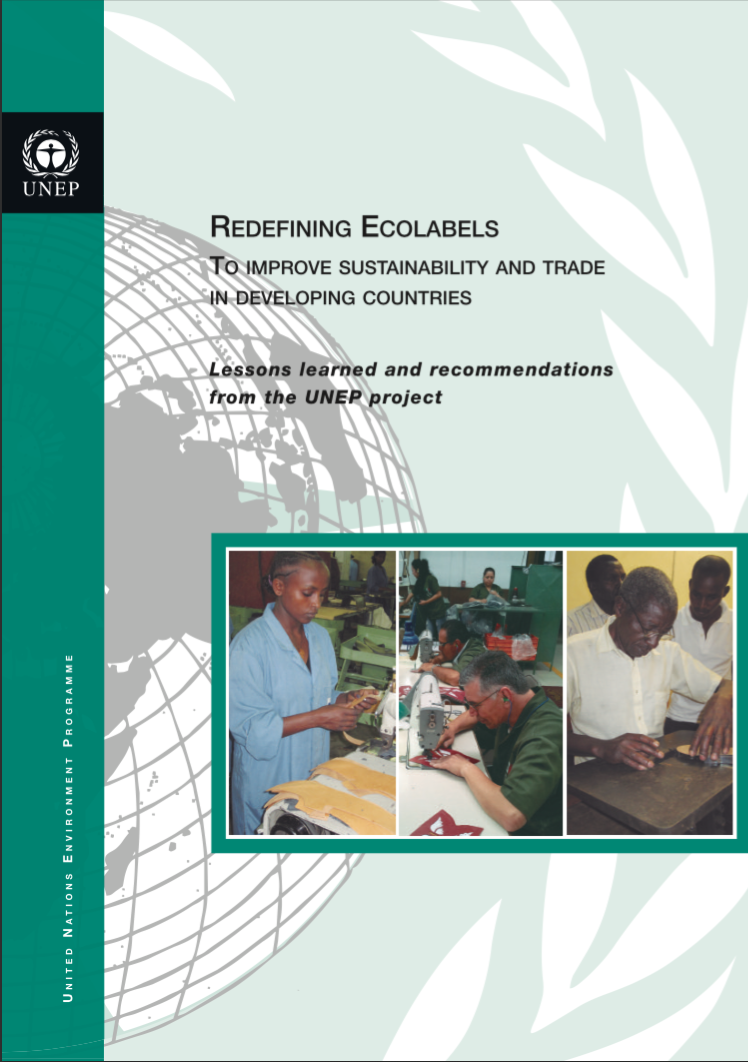Redefining Ecolabels to Improve Sustainability and Trade in Developing Countries: Lessons learned and recommendations from a UNEP project
This report aims to evaluate to what extent the project succeeded in reaching its intended goals, to draw lessons learned, and present recommendations for future actions.
The report's methodology is based on the compilation and review of all project documents and relevant literature on trade and ecolabels. It also involved interviews with participants from the project, including funders, implementing bodies, country partners, and some target enterprises when available.
Section I introduces readers to ecolabels and the differences between different information systems, provides an overview of how these systems are used in developed and developing countries and introduces the major challenges, opportunities, and debates around voluntary labelling and standards globally, including the debate about ecolabels as possible barriers to trade.
Section II introduces the UNEP ‘Enabling developing countries to seize ecolabelling opportunities' project and partners, and the assessment methodology.
Section III of this report focuses on the assessment of the project results in relation to its goals. This section is based on interviews with key stakeholders in the project, as well as background research. It reviews the project as a whole, including a sector and country analysis. It describes the baseline situations and major developments that happened during the five years of the project.
Section IV provides lessons learned and recommendations to project partners and other stakeholders on further improvement and future projects. Suggestions are targeted toward all stakeholders involved in the ecolabelling field.


